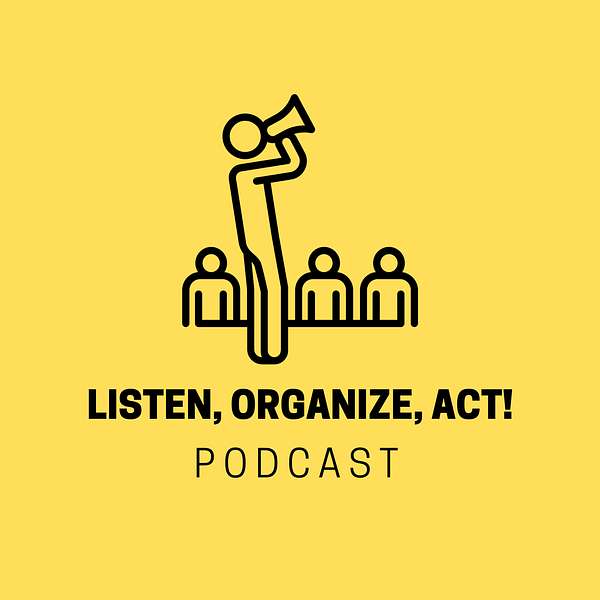
Listen, Organize, Act! Organizing & Democratic Politics
Listen, Organize, Act! Organizing & Democratic Politics
S2.E4.2: Bayard Rustin - Part 2
Use Left/Right to seek, Home/End to jump to start or end. Hold shift to jump forward or backward.
Building on the previous episode, this one continues to discuss the work of Bayard Rustin and the overlapping struggles that shaped his vision of democracy and his approach to organizing. I do so with Harry Boyte. We focus on Rustin’s practice as an organizer, his conception of nonviolence as a form of democratic politics, and how to understand Rustin’s classic 1964 essay “From Protest to Politics,” as well as what Rustin has to teach us today. Along the way, Harry tells dramatic stories about his own work as an organizer and unfolds why Rustin's approach shows how distinctions between left and right or conservative and progressive are useless for thinking politically. Harry reflects on how all communities have democratic and authoritarian impulses. For him, the work of organizing is to identify and build up the capacity of the former and counter the work of conflict entrepreneurs who play on the latter.
Guest
Harry C. Boyte is a public intellectual, organizer, and theorist of the public work framework of civic engagement and participatory democracy. He worked as a young man for Martin Luther King’s organization, the Southern Christian Leadership Conference, reporting to Dorothy Cotton, director of the movement’s 900 grassroots citizenship schools. From 1966 to 1972, following the suggestion of King, he organized poor white mill workers in Durham, North Carolina who built a community organization, ACT, which made connections with poor blacks in Durham. He was a co-founder of the New American Movement, a precursor to Bernie Sanders’ Democratic Socialists of America, before he shifted to a democratic populist philosophy in the late 1970s. Boyte is now Senior Scholar in Public Work Philosophy at Augsburg, a Senior Associate of the Kettering Foundation, a cofounder of the Institute for Public Life and Work, and on the Scholars Council of Braver Angels.
Asked by the University of Minnesota’s Humphrey Institute in 1987 to organize a project on democracy, he translated what he called the “citizen politics” he had generalized from the organizing of the Industrial Areas Foundation into a variety of projects to democratize institutions, from schools and colleges to government agencies and nonprofits. In 1990, working with Dorothy Cotton and Jim Scheibel, he founded Public Achievement (PA) a youth political and civic education initiative based on community organizing practices and a larger view of democracy which has spread to more than 20 countries.
From 1993 to 1995, Boyte coordinated Reinventing Citizenship, a cross partisan alliance of educational, civic, and philanthropic civic groups, which worked with President Clinton’s White House Domestic Policy Council to analyze the gap between citizens and government and to advance the idea of “public work,” akin to what Nobel prize winner Elinor Ostrom later theorized as “polycentric governance” as an alternative to simple regulation or service delivery. In 2012-2013, on the invitation of Obama’s White House Office of Public Engagement, he coordinated the American Commonwealth Partnership, a confederation of higher education and civic groups formed to commemorate the 150th anniversary of the Morrill Act establishing land grant colleges.
Harry Boyte has authored, coauthored, and edited eleven books on democracy, citizenship, and community organizing, including The Backyard Revolution (1980), Free Spaces with Sara Evans (1986, 1992); CommonWealth: A Return to Citizen Politics (1989) and Awakening Democracy (2018). His writings have appeared in more than 100 publications including New York Times,
- For more information & relevant updates follow me on Twitter: @WestLondonMan
- For readings to download relevant to or discussed in an episode visit: https://ormondcenter.com/listen-organize-act-podcast